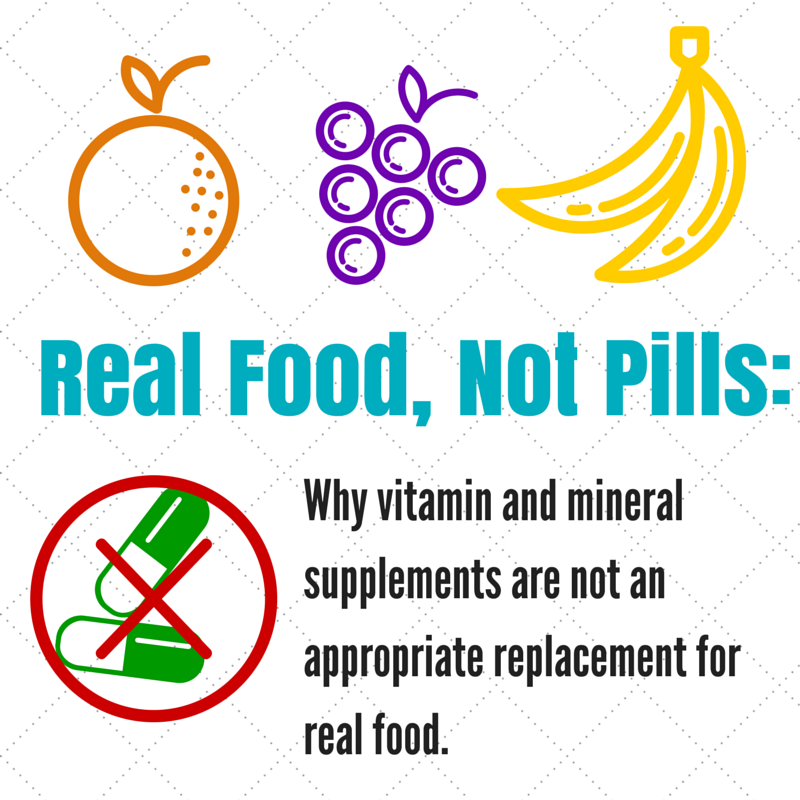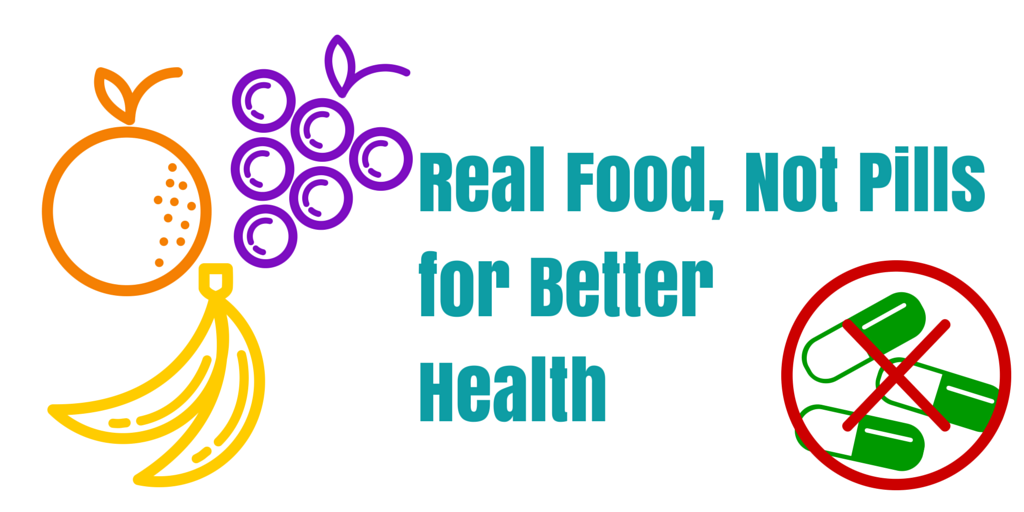
So everyone talks about fats, proteins, and carbohydrates, but what about the vitamins and minerals?
Oh, those come from those little pills they sell in the health section. Right?
Hmm. Not necessarily. In fact, the supplement industry is really not an ideal source of nutrition. Their standards are loose and the real quality of the supplement is typically more sensitive to corporate profits than your body’s needs. I am not saying that in some situations, like when a deficiency is present and a symptom needs to be relieved, they are not useful.
However, vitamin and mineral supplements are not an appropriate replacement to real food.
When I describe a high quality diet, I am using the term in the way it is used in anthropology to describe a diet that is easily digested and densely fortified with all the nutrition needed for an animal’s health. As humans I believe that science shows we are an animal which is adapted to consume a very high quality diet. For this reason, when I refer to something as a super food, it will always be a food which provides a broad variety of important nutrients in a large quantity by volume and is easily digested. In this way we receive the most benefit to the system with the least cost, a.k.a. “the most bang for your buck!” We have shown tremendous ingenuity when it comes to methods of producing a higher quality diet for ourselves. Food selection, agricultural practice, and healthy processing has tremendously increased the quality of our diet, bringing us an ever higher biological benefit to cost ratio.
Foods that contain a big nutrient punch in a little package are important supplements to a diet composed primarily of whole foods.
A whole food diet containing fruits, roots, meats, and fish will provide a good foundation for the protein, fats, and carbs. Fruits such as guavas and tart cherries are higher quality than some of the more common foods. Occasionally including these fruits will increase the quality of this diet. Eggs and milk are not only great sources of protein, but are also extremely rich in important vitamins and minerals. When the two are consumed in combination, the nutrients in the eggs and milk complement each other, leading to a greater benefit. By using the dairy and egg as a good portion of the protein, especially as a replacement to meat, the quality of the diet is raised.
Liver is an excellent nutrient supplement in a whole food diet.
However, when we are speaking of high quality super foods, there are really none that quite hold the prestige of liver. The liver contains a tremendous spectrum of vitamins and minerals and it only needs to be consumed in very small quantities a couple of times a week. For this reason, the liver is able to act as an excellent nutrient supplement in a whole food diet. Whole mollusks, such as oysters, are similar in range of vitamin and minerals as liver. They are often considered quite a bit more delicious, although they are also quite a bit more expensive. The B vitamins, the fat soluble vitamins ADEK, and the trace minerals such as selenium, copper, manganese, molybdenum, and zinc which these foods bring in such high levels can really add an important dimension to a whole diet.
By bringing these super foods into our diet, we can also reduce the foods which have too great a toxic effect. Super foods are a real key to bringing “ideal” balance to the Foundation for Human Nutrition. In the future I will discuss specific methods of preparation which can aid in the increased quality of the diet.
By using high quality super foods, we allow the food we eat to meet the needs of the body and enable a balance in the diet that promotes our metabolic function and thus our health.








1 Comment